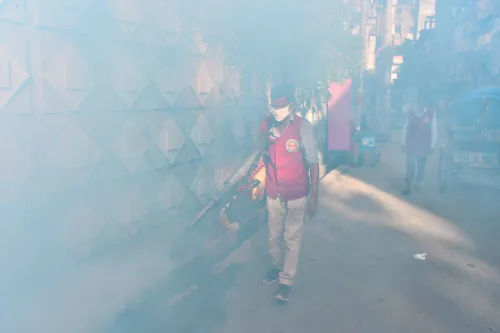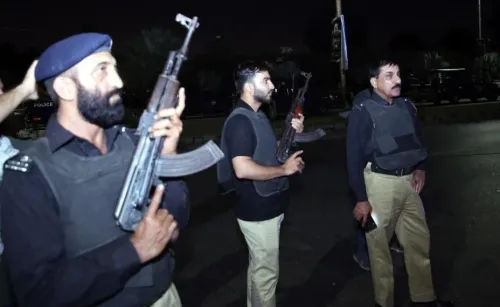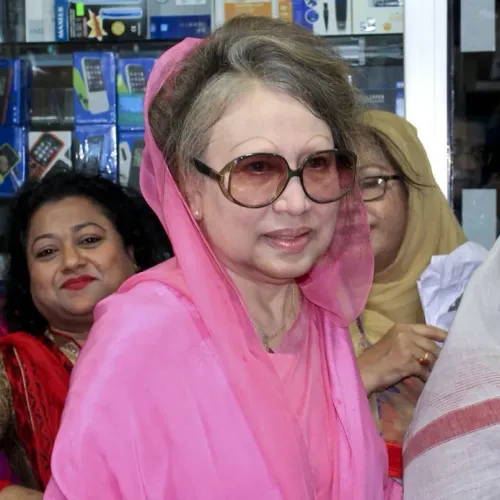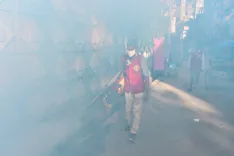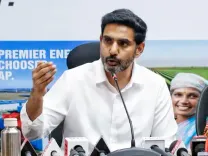What Actions Are BRICS Leaders Taking Against Terrorism Following the Pahalgam Massacre?
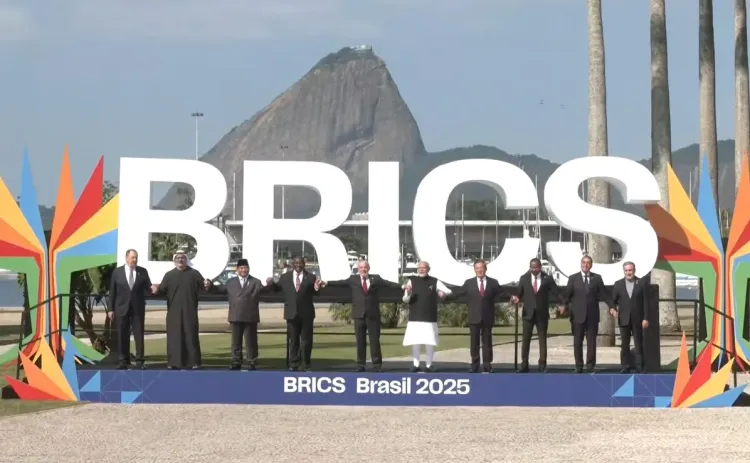
Synopsis
Key Takeaways
- BRICS leaders condemned the Pahalgam massacre.
- The declaration emphasizes zero tolerance for terrorism.
- Calls for accountability of all terrorist activities.
- Support for the BRICS Counter-Terrorism Working Group.
- Rejection of double standards in counter-terrorism efforts.
Rio de Janeiro, July 7 (NationPress) In a significant diplomatic triumph for India, led by Prime Minister Narendra Modi, the leaders of the BRICS nations issued a strong condemnation of the Pahalgam terror attack that occurred on April 22. They reaffirmed their dedication to fighting the cross-border movement of terrorists, the financing of terrorism, and the existence of terrorist safe havens, while also committing to coordinated actions against all UN-designated terrorists and entities.
The brutal attack, which resulted in the deaths of 26 innocent tourists in Jammu and Kashmir, has been widely condemned globally.
The 'Rio de Janeiro Declaration', established after the first day of the 17th BRICS Summit in Brazil, clearly stated the leaders' stance: "We express our strong condemnation of all acts of terrorism as criminal and unjustifiable, irrespective of the motives behind them, wherever and by whomever they are committed."
Paragraph 34 of the declaration explicitly condemned the April 22 attack, reaffirming the commitment to combat terrorism in all forms, including the cross-border movement of terrorists and their funding.
Investigations into the Pahalgam attack revealed connections to terrorist communications in Pakistan. The group known as The Resistance Front (TRF), linked to the UN-designated terror group Lashkar-e-Taiba, claimed responsibility for the attack.
During this heinous act, Pakistani terrorists targeted Indian and Nepalese nationals, segregating them based on religion before carrying out the killings.
The BRICS leaders collectively stated, "We emphasize that terrorism should not be linked to any religion, nationality, civilization, or ethnic group, and all involved in terrorist activities must be held accountable in accordance with national and international law."
Furthermore, they called for zero tolerance towards terrorism and denounced double standards in counter-terrorism efforts. The leaders highlighted the responsibility of states to combat terrorism and ensure compliance with international law, including UN principles.
The BRICS group expressed support for the BRICS Counter-Terrorism Working Group (CTWG) and its strategies, signaling a commitment to deepen cooperation against terrorism.
Looking ahead, the leaders urged swift completion and adoption of the Comprehensive Convention on International Terrorism within the UN framework, stressing the need for collective action against all UN-designated terrorists.
In light of the Pahalgam attack, National Security Advisor Ajit Doval emphasized the importance of eliminating double standards in addressing terrorism and advocated for decisive actions against UN-listed terrorists.
All 11 BRICS leaders expressed their unified condemnation of the Pahalgam attack, with commitments to combatting cross-border terrorism.
The declaration also addressed the ongoing threats posed by terrorist groups like Lashkar-e-Taiba and Jaish-e-Mohammed, calling for accountability for those involved in financing and supporting these acts of terror.
On a related note, Pakistan, which harbors Lashkar-e-Taiba, has applied to join BRICS, but this request remains pending.
In summary, the BRICS leaders rejected any double standards in counter-terrorism, advocating for a unified approach in tackling global terrorist threats and emphasizing adherence to international law.


